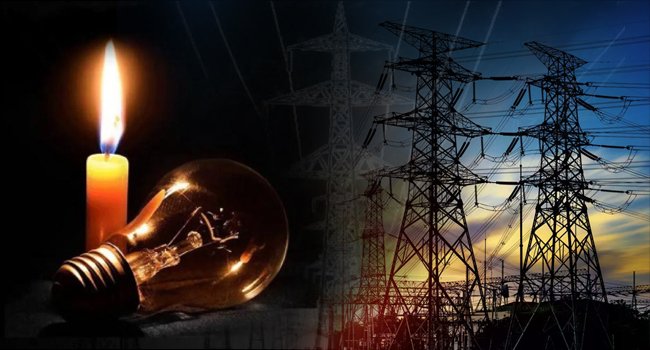The national grid has collapsed third time in a week under Adebayo Adelabu.
NewsOnline Nigeria reports that Nigerians are again reeling in darkness following the collapse of the national power grid for the third in one week.
This Nigeria news platform reliably gathered that the grid collapse occurred early Saturday morning, with many states reporting total blackouts.
Data obtained from the Nigerian System Operator’s portal (niggrid.org), revealed that the grid recorded an unprecedented zero Megawatts (MW) as of 8:16 am today.
ALSO: High Petrol Prices Reportedly Push Inflation To 32.70%
Data showed that all 22 generation companies (GenCos) are down as of the time of this report.
The grid had collapsed twice this week, marking the eighth grid disturbance in 2024.
NewsOnline Nigeria reports that the Transmission Company of Nigeria (TCN) had yet to confirm the incident at the time of this report, leaving Nigerians in the dark as to the reason behind this round of blackouts.
On February 4, Nigeria experienced its first blackout of 2024 when the national grid collapsed at approximately 11:51 AM. The TCN-managed grid saw its capacity plummet from 2,407 megawatts to just 31MW by noon, and it completely shut down by 1 PM.
Grid Collapse Inevitable, Says Adelabu
Although TCN is yet to speak on the latest collapse, the minister of power, Adebayo Adelabu on Friday said the grid collapses are almost inevitable in Nigeria given the deplorable state of the country’s power infrastructure.
The minister also said there is a need to have power grids in different regions or states to put an end to incessant grid collapses. Adelabu said this on Wednesday when he unveiled Hexing Livoltek, an electricity metre manufacturing company in the Lekki area of Lagos State.
According to him, having multiple power grids in each region and state would ensure stability. He noted that the decentralisation of the power sector would help the plan to build grids in each region, saying this was made possible by the Electricity Act signed by President Bola Tinubu in 2023.
“This Electricity Act has decentralised power. It has enabled all the subnational governments, the state government and the local government, to be able to participate in the generation, transmission, and distribution of electricity,” he said.
“We all rely on a single national grid today; if there is a disturbance of the national grid, it affects all 36 states. It shouldn’t be like that. This will enable us to start moving gradually towards having regional groups and possibly having state grids.
“And each of these grids will be removed and shielded from each other. So, if there’s a problem with a particular grid, only the state where it belongs will be affected, not the entire nation. So, this is one of the impacts this Electricity Act will have.”
Touching more on the grid collapse, he emphasised that the situation would be inevitable without sufficient investment in the sector.
